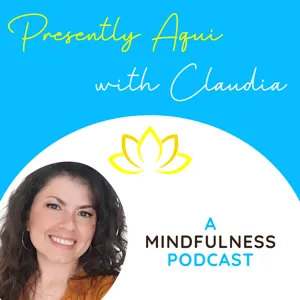Podcast Summary
Understanding the complexities of our inner world: Learning to be curious and mindful towards inner parts leads to greater self-awareness and unity
Our inner world is complex and consists of various parts, each with its unique characteristics and functions. These parts can have conflicting emotions and behaviors, leading to internal struggles. Dr. Richard Schwartz, a pioneer in psychology and the creator of Internal Family Systems (IFS) model of therapy, noticed these patterns in his clients and focused on the relationship among these parts. He started out as a family systems therapist but was moved to create IFS when he realized that external family reorganization wasn't enough to help individuals dealing with internal conflicts. Through his work, Dr. Schwartz discovered that when individuals learn to be curious and mindful towards their inner parts instead of fighting them, these parts can share valuable insights, leading to greater self-awareness and unity.
Understanding the Internal Family Systems Model and its role in healing from past traumas: The IFS model encourages recognizing and healing the various parts within us, including protectors and exiles, to achieve a more authentic and whole self
The Internal Family Systems (IFS) model suggests that everyone has different parts within them, each with valuable qualities and resources. However, these parts can become frozen and protective in response to trauma or attachment injuries, often leading to vulnerabilities and exiles being locked away. Protector parts then emerge to shield these exiles, sometimes resulting in common roles like inner critics, caretakers, or managers. The ultimate goal is to help individuals listen to and understand their parts, allowing them to heal and reunite with their exiles, leading to a more whole and authentic self.
Identifying Inner System of Parts in IFS Therapy: IFS therapy helps individuals connect with their inner self, trusting the inner system to heal through the discovery of impulsive firefighter parts and compassionate self parts, fostering trust, empowerment, and self-discovery.
Inside Family Systems (IFS) therapy identifies the existence of an inner system of parts within individuals, each with distinct emotions, functions, and hierarchies. Firefighter parts, such as addictions or rage, are impulsive and distract from exiled emotions, while self parts, like calm and compassion, can heal and lead. IFS aims to help individuals connect with their self, which emerges spontaneously when space is created, and trusts this inner system to heal both internally and externally. In practice, IFS therapists act as colleagues or co-therapists, allowing clients to discover their inner knowing and figure things out for themselves. This approach fosters trust, empowers clients, and encourages self-discovery.
Understanding the protective nature of anxiety: Anxiety can be a protective response to emotional vulnerability. By getting curious, allowing space, and asking questions, we can shift our relationship with it, moving from fear to understanding.
Our emotions, especially those that make us feel vulnerable, can trigger protective responses within us. These responses can manifest physically and emotionally, often leading to anxiety or sadness. In this conversation, Forrest identified a feeling of anxiety that arose when he felt emotionally vulnerable around others. By acknowledging and exploring this feeling, Forrest was able to understand that it was a protective mechanism, designed to keep him from getting too emotionally invested in situations that might be uncomfortable or overwhelming. This process involved getting curious about the anxiety, allowing it space, and asking it questions to better understand its motivations. By doing so, Forrest was able to shift his relationship with the anxiety, moving from a place of fear and judgment to one of compassion and understanding. This approach can be helpful for anyone looking to better understand and manage their own emotional responses.
Speaking directly to the affected part in IFS therapy: Directly addressing the affected part in IFS therapy can lead to deeper understanding and potential for growth
During an Internal Family Systems (IFS) session, the therapist speaks directly to the affected part instead of engaging with the thinking part when the latter is reluctant to let go. This approach can lead to a deeper understanding of the part's emotions and motivations, ultimately providing a clearer perspective and potential for growth. This example demonstrates the flexibility and adaptability of IFS therapy, allowing for a more direct and practical approach when needed. Additionally, the Doctor John Delaney show, which focuses on providing real-life solutions to common challenges, can serve as a valuable resource for those seeking guidance on emotional well-being.
Exploring Health and Wellness through Podcasts and Therapy: Podcasts like ZOE Science and Nutrition provide reliable health information, while IFS therapy promotes emotional well-being through authentic communication with different parts of oneself.
There are numerous reliable resources available to help individuals make informed decisions about their health, such as the ZOE Science and Nutrition podcast. Additionally, simple and scientifically validated solutions, like OneSkin's OS o one peptide, can make a significant difference in maintaining healthy skin. IFS therapy, as discussed in the podcast and the author's new book "No Bad Parts," emphasizes the importance of authentic communication with different parts of oneself, making it a valuable tool for personal growth and improved emotional well-being. Both the ZOE Science and Nutrition podcast and IFS therapy offer practical and evidence-based approaches to enhance overall health and well-being.
Understanding the Overactive Inner Protectors in IFS Therapy: IFS therapy identifies inner parts with specific roles, but trauma can cause them to take on excessive responsibilities, hindering growth and trust in self. Recognizing, understanding, and trusting these parts leads to healing and personal growth.
According to Internal Family Systems (IFS) therapy, our inner parts have specific roles to play, but when we experience trauma or adversity, these parts may take on responsibilities that are beyond their original intentions, leading them to assume more control and responsibility than necessary. These parts, often formed during childhood, may believe they are protecting us, but in reality, they may be hindering our growth and preventing us from trusting ourselves. For instance, a protective part may have developed to shield us from emotional pain during our adolescence, but as we grow older, it may continue to hold us back from being vulnerable and trusting others. The key to healing is recognizing these parts, understanding their origins, and helping them trust the present-day self, allowing them to relax and relinquish their excessive responsibilities. This process can lead to significant relief and personal growth. Additionally, it's important to note that this concept is not limited to individual experiences; it can also apply to family dynamics, where children may take on adult roles and responsibilities when parents are unable to do so.
Understanding Protective Parts in IFS Therapy: IFS therapy views every part, even destructive ones, as having a protective function, promoting a hopeful and empowering approach to healing and personal growth
According to Internal Family Systems (IFS) therapy, there are no inherently "bad" parts within us. Every part, no matter how destructive or harmful its actions may seem, has a protective function. The challenge lies in understanding and compassionately working with these parts to transform them into their naturally positive and healthy selves. This perspective is a radical shift from the traditional medical model, which often diagnoses and treats conditions as diseases or illnesses. IFS encourages a more hopeful and empowering approach, viewing each diagnosis as a cluster of protective parts responsible for specific symptoms. This perspective has been met with skepticism in the field of psychiatry, but IFS has shown success in addressing even extreme conditions like bulimia, self-harming behaviors, sex offenses, and more. The ultimate goal is to help individuals develop greater compassion and understanding towards their own protective parts, leading to healing and personal growth.
Exploring Deep-rooted Trauma with Psychedelics: Psychedelic-assisted psychotherapy using MDMA and psilocybin shows promise in treating trauma, allowing individuals to access and work with deep-rooted parts from a present perspective.
Psychedelic-assisted psychotherapy, particularly MDMA and psilocybin, is gaining serious recognition in the field of mental health. This approach, which includes the work of organizations like MAPS and Johns Hopkins Research Center, has shown significant results in treating conditions like PTSD. The self-exploratory nature of these therapies allows individuals to access and work with deep-rooted parts, even those related to traumatic experiences. Unlike some trauma therapies that aim to help individuals express and complete unfinished experiences, IFS allows individuals to access their self and witness past traumas from a present and grounded perspective. This approach has shown promise in helping individuals process traumas without being overwhelmed. Overall, psychedelic-assisted psychotherapy and IFS offer a unique and effective approach to mental health treatment, particularly for those with trauma histories.
Healing past traumas through IFS therapy: IFS therapy provides a unique approach to healing past traumas by being present with affected parts, providing care, and allowing emotions to be released, leading to a transformative experience.
Internal Family Systems (IFS) therapy offers a unique and healing approach to processing past traumas by rewriting the emotional narrative within an individual's inner world. This approach involves being present with the affected parts, providing protection and care, and allowing them to release their feelings and emotions. By doing so, trust is built between the therapist and the client, and the abandoned parts are no longer left behind. This method is counterintuitive to societal norms of letting go and moving on, but it provides a valuable way to acknowledge and appreciate past experiences. Through this process, IFS therapy offers a transformative and healing experience for those dealing with trauma.
Reconnecting with younger selves in IFS therapy: IFS therapy helps individuals with trauma heal by allowing them to encounter and rewrite the stories of their younger selves, providing a new sense of self and resources.
Internal Family Systems (IFS) therapy is an effective intervention for individuals with a trauma history, as it allows them to reconnect with and rewrite the stories of their younger selves. During the therapy process, individuals encounter different parts of themselves, including soothing and defensive parts. These parts are often fixed in time and associated with specific ages, making it essential to remind them that the individual is no longer the same age as when the painful experiences occurred. By providing a new sense of self and resources, individuals can reconstruct their emotional narratives and heal from past traumas. IFS can be a valuable tool for those seeking to improve their emotional well-being and find greater connection with themselves and others. For more information on IFS and to find a clinician, visit the IFS Institute's website. If you've enjoyed the podcast, please consider subscribing, leaving a review, or supporting us on Patreon.



![indecisiveness, a talk with emily p. freeman [video]](https://www.podcastworld.io/podcast-images/anything-goes-with-emma-chamberlain-ro26h70m.webp)


